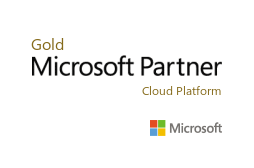1STAFF POWERED BY MICROSOFT MANAGED SERVICES
Pre-pandemic, your business could operate with most of your employees working inside the four corners of your office, and your IT Managed Service Provider (MSP) focused more on monitoring and securing your network, servers, and desktops.

However, today your organization relies on cloud services, modern devices, work from anywhere, and bring your own device (BYOD) work styles, and so the focus has shifted into supporting your remote workers with optimized processes and tools that make their jobs easier. We see a shift of priorities towards enabling team collaboration, rapid business process automation, self-service analytics, employee experiences, and more.
Whilst your traditional MSP may continue to support your business from a break/fix or IT infrastructure perspective, it will not be able to keep up with your shifting focus to digital transformation that a modern MSP could. Traditional MSPs do not have the skills to analyze, develop, or implement digital processes, user experience programs, and transformation as part of their core services. Modern MSPs such as Professional Advantage bring transformation-led support services to your organization, providing sound and forward-looking technology recommendations to help you and your staff embrace and underpin business enablement.
Take a close examination of how your current MSP is supporting you today. If you are experiencing any of the signs below, it may be time to explore working with a Modern MSP.
1 | You need to rapidly innovate digitally.
One of the best things about a Modern MSP is they go beyond your traditional network, desktop, server maintenance, and monitoring or OS/software patching. Being digital transformation specialists, they have the skills, experience, and the team to help you empower secure content sharing, boost team collaboration, enable agile business process automation, self-service reporting and analytics, and more. Unlike traditional MSPs, access to rapid digital innovation becomes part of your support services in a modern MSP.
2 | You don’t have a clear understanding of how to fully maximize the solutions you are licensed for.
Most businesses are already using cloud solutions one way or another, such as Microsoft 365, Azure, or Dynamics 365. But how many of the apps available in your licenses are you actually using? Does your current MSP provide you with a clear understanding of what these solutions are for, and how you can fully take advantage of them? Modern MSPs don’t just provide guidance on helping you understand your Microsoft licenses. They can also provide the vision and the technical expertise to implement them so you can truly maximize your software investments and further mature your cloud adoption.
3 | You don’t have in-house business analysts and solution architects.
It takes a combination of skilled business analysts and solution architects to help you modernize your business processes and adapt to your already licensed solutions. Fortunately, IT professionals are a regular part of a modern MSP’s team. They can help you build your business case, outline a solution roadmap, and identify key improvement areas on your processes down to developing, implementing, and supporting the agreed solutions. Modern MSPs can extend your existing IT team by providing your business quick access to expertise that you may not have in-house.
4 | You cannot keep up with learning or implementing new technologies.
Your Microsoft cloud solutions have constant changes, new releases, and significant advantages that your organization can potentially benefit from. But learning these changes can be overwhelming, even more so with implementing them. A modern MSP can break down what the new updates could mean for your business and help you consider them in your IT plans.
5 | You lack continuous cloud platform optimization.
Modern MSPs can perform a continuous analysis of how you are using your cloud solutions and can help you optimize them. They can provide you with periodic Microsoft 365 usage and trends reporting, user training activities, and adoption programs, or Security and Compliance Score reviews to be used as a basis for priority planning.